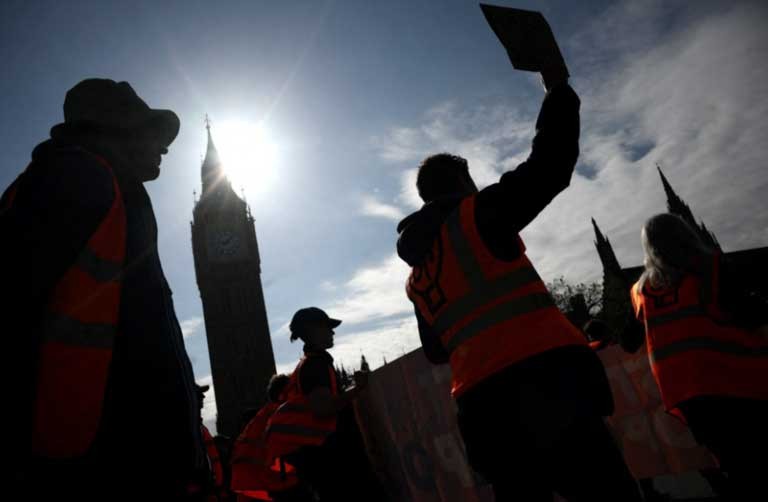The Independent
What is the ‘African plume’ that could bring 35C heatwave conditions to UK?
Story by Stuti Mishra • 4:36 pm - 22-5-2023
The UK is bracing itself for a scorching summer as meteorologists have predicted the arrival of the much-discussed “African plumes” later this month which can make temperatures soar to 35C.
In a widely reported forecast, Exacta Weather said African plumes are likely to sweep across Europe between June and September.
The weather phenomenon, characterised by a mass of hot air originating from the Sahara desert, have the potential to bring multiple heatwaves.
While such a scenario may be unprecedented, experts agree it is not impossible, given recent warming climate trends.
On Sunday, the UK witnessed temperatures above 20C in several areas across England and Wales, making it the hottest day recorded this year so far.
The coming days are set to get warmer with “above average” temperatures expected by the end of May.
As the UK eagerly awaits the summer heat, there is fear that the conditions can get worse again this year, with heatwave-like conditions stemming from the arrival of the anticipated African plumes.
Here’s what exactly an African plume is and how hot it can get.
What is an African plume?
An African plume is a weather phenomenon in which hot air masses from the Sahara desert in Africa are transported northward towards Europe, including the UK.
This plume of hot air carries with it high temperatures and dry conditions, leading to exceptionally warm weather.
During an African plume event, southerly or southeasterly winds carry the hot and dry air across the Mediterranean Sea towards the British Isles. As the air mass moves over the warm waters of the Mediterranean, it absorbs heat and moisture, further intensifying its warmth and humidity.
This process creates a distinct narrow band of hot air, resembling a feather-like structure on weather maps.
How hot will it get when African plumes arrive?
When an African plume reaches the UK, it brings a period of unusually hot temperatures, often exceeding 30C.
These high temperatures can persist for several days or even weeks, resulting in heatwave conditions.
However, the intensity and duration of the heatwave can vary from year to year, depending on atmospheric conditions.
James Madden of Exacta Weather told The Mirror that there are “some strong indicators” for a “warm to hot September this year” due to the African plumes.
“The peak of these heat surges in June and July could see maximum temperatures ranging in the low to mid-thirties, and the late summer/August heatwave could sign off summer 2023 with temperatures ranging a notch or two higher than this,” he was quoted as saying.
What is the ‘African plume’ that could bring 35C heatwave conditions to UK?
Story by Stuti Mishra • 4:36 pm - 22-5-2023
The UK is bracing itself for a scorching summer as meteorologists have predicted the arrival of the much-discussed “African plumes” later this month which can make temperatures soar to 35C.
In a widely reported forecast, Exacta Weather said African plumes are likely to sweep across Europe between June and September.
The weather phenomenon, characterised by a mass of hot air originating from the Sahara desert, have the potential to bring multiple heatwaves.
While such a scenario may be unprecedented, experts agree it is not impossible, given recent warming climate trends.
On Sunday, the UK witnessed temperatures above 20C in several areas across England and Wales, making it the hottest day recorded this year so far.
The coming days are set to get warmer with “above average” temperatures expected by the end of May.
As the UK eagerly awaits the summer heat, there is fear that the conditions can get worse again this year, with heatwave-like conditions stemming from the arrival of the anticipated African plumes.
Here’s what exactly an African plume is and how hot it can get.
What is an African plume?
An African plume is a weather phenomenon in which hot air masses from the Sahara desert in Africa are transported northward towards Europe, including the UK.
This plume of hot air carries with it high temperatures and dry conditions, leading to exceptionally warm weather.
During an African plume event, southerly or southeasterly winds carry the hot and dry air across the Mediterranean Sea towards the British Isles. As the air mass moves over the warm waters of the Mediterranean, it absorbs heat and moisture, further intensifying its warmth and humidity.
This process creates a distinct narrow band of hot air, resembling a feather-like structure on weather maps.
How hot will it get when African plumes arrive?
When an African plume reaches the UK, it brings a period of unusually hot temperatures, often exceeding 30C.
These high temperatures can persist for several days or even weeks, resulting in heatwave conditions.
However, the intensity and duration of the heatwave can vary from year to year, depending on atmospheric conditions.
James Madden of Exacta Weather told The Mirror that there are “some strong indicators” for a “warm to hot September this year” due to the African plumes.
“The peak of these heat surges in June and July could see maximum temperatures ranging in the low to mid-thirties, and the late summer/August heatwave could sign off summer 2023 with temperatures ranging a notch or two higher than this,” he was quoted as saying.
12 months ago


